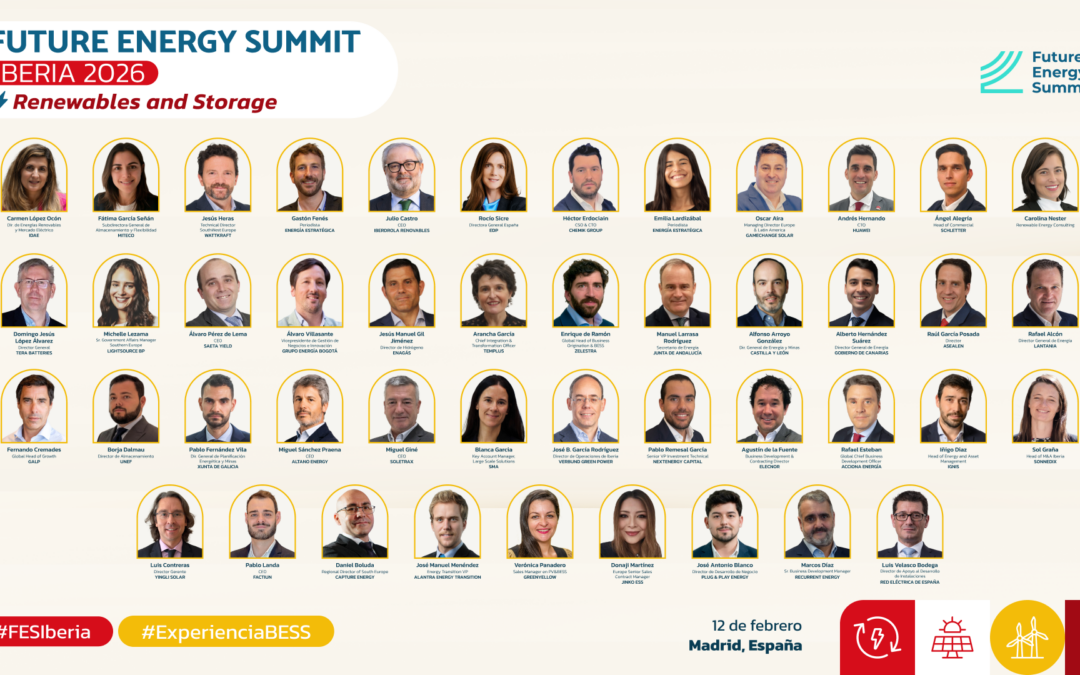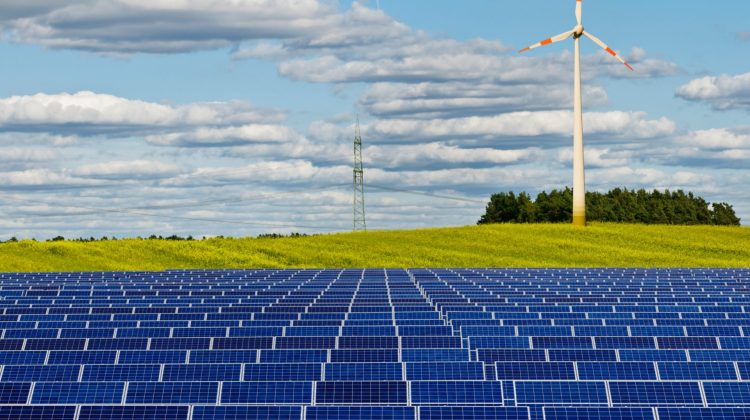Spain has taken a decisive step towards consolidating energy storage as a cornerstone of its electricity system. The provisional resolution published by the Institute for Energy Diversification and Saving (IDAE) this week marks a milestone in the national strategy, selecting 144 innovative projects totalling 2,416.54 MW of installed capacity and mobilising €841.4 million in public subsidies.
The programme, co-financed by the European Regional Development Fund (ERDF) 2021-2027, allocates €657.27 million in direct aid and €184.12 million in additional funds, the result of a 20% increase over the initial budget.
The selected projects range from large-scale battery systems to industrial thermal storage and new pumped-hydro plants, reflecting both the technological maturity of the sector and Spain’s ambition to play a leading role in Europe’s energy transition.
The figures illustrate the scale and diversity of the initiative: from small 0.39 MW facilities to major 200 MW infrastructures, with an average capacity of 16.8 MW per project. The average subsidy amounts to €4.76 million, with a minimum of €60,080 and a maximum of €34.98 million, evidencing the coexistence of experimental solutions and large-scale developments in this first major public call for energy storage in Spain.
Andalusia emerges as the main beneficiary with €374 million awarded—almost half of the national total. The region leads in both scale and technological diversity, deploying stand-alone battery systems, hybrid photovoltaic projects and industrial thermal storage. Among the key players are Rolwind, with its ST Palmosilla and ST Cerrillo projects in Cádiz, and industrial heavyweights such as Acesur, COVAP, Persán, Acerinox and Intermalta Sevilla, which will implement high-efficiency electric heating systems to replace fossil-fuel boilers.
Andalusia’s dominance does not overshadow the progress made in other regions shaping their own strategies. Castilla-La Mancha follows with €96.6 million, focusing on thermal storage integration in concentrated solar power plants, while Galicia directs efforts to modernising its hydroelectric infrastructure to provide renewable backup. Meanwhile, Castile and León, with €38.7 million, promotes distributed battery and hybrid systems aimed at strengthening grid resilience.
The impact of the programme also reaches Spain’s islands and regions undergoing energy transition. In the Canary Islands, €27 million will support self-sufficiency through projects such as Villa BESS 1 and Muelle Grande BESS II, while the Balearic Islands, with €11 million, will implement hybrid and thermal systems to stabilise local grids with high renewable penetration. In the north, Asturias and Murcia develop thermal and electrical storage initiatives targeting heavy industry and solar generation respectively.
Overall, the call distributes funds among four main technological categories: €343 million for hybrid renewable generation projects, €187 million for pumped-hydro storage, €177 million for stand-alone electrical systems and €131 million for thermal storage.
A ten-working-day period is now open for the submission of appeals and the verification of financial requirements. Once this process concludes, the final list of beneficiaries will mark the beginning of a new stage for Spain’s energy sector.
With this first call, Spain not only accelerates the deployment of new storage infrastructure but also sets out a roadmap towards a more flexible, competitive and decarbonised electricity system.
The sector welcomes progress but calls for a more balanced distribution of funds
The publication of the provisional resolution not only marked an administrative milestone—it also sparked a wave of reactions among the main players in the energy storage ecosystem. Manufacturers, integrators and developers praised IDAE’s efforts to drive the sector forward, though several voices called for a more balanced territorial allocation and a wider spread of the aid.
Risen Energy Europe highlighted its recognition for technological excellence and European integration of its BESS solutions, after scoring 4.2 out of 6 points in the value chain assessment. The company stressed that this reflects full compliance in power electronics and EU-based manufacturing, along with comprehensive EMS and O&M support. Its partnership with a Spanish integrator further consolidates its position as a “reliable, high-value partner for ERDF-funded projects.”
Similarly, Jinko ESS celebrated the admission of several of its clients’ projects, viewing it as a sign of market confidence in its technology. “Storage is the new engine of the energy transition,” the company stated, underscoring its grid-forming capabilities and its contribution to industrial decarbonisation through advanced, secure systems.
In the Valencian Community, NRG Investment confirmed the award of **three projects—Jalance, La Portera and Benejama—**representing 32% of all regional aid, with a combined value exceeding €14 million. The company, which will add 30 MW of generation and 120 MWh of storage, emphasised the industrial and technological strength of the region and the role of local partners such as HESStec, Endurance Motive and Power Electronics. “This demonstrates that the Valencian Community can lead the next generation of energy projects across Spain,” its management noted.
The resolution also prompted some critical analysis. Andrés Pinilla, a leading figure in the BESS sector and sales director for Europe and Latin America, praised IDAE’s ability to process over 1,500 applications in record time. However, some stakeholders pointed out that “there has been a strong concentration of aid in a small number of projects, limiting the programme’s reach.” Other experts agreed that a more granular distribution could have accelerated technology adoption among SMEs and new developers, broadening the industrial base of the sector.
Amid both celebration and debate, one conclusion stands out: energy storage is no longer a promise for the future—it is a reality in progress. Technology providers are now positioning themselves in a market that will increasingly demand local integration, European certification and strategic partnerships to sustain competitiveness in the coming decade.
List of approved projects for which aid is proposed
pinalm_prop_resol_provis_adjudicacion_firmado (2)List of approved projects for which no aid is proposed
pinalm_prop_resol_provis_adjudicacion_firmado (3)

























